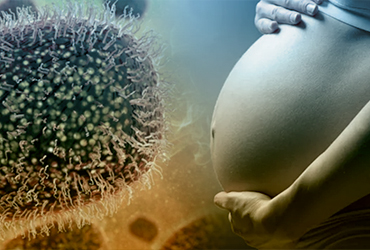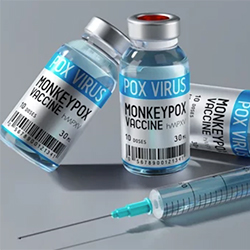By Ethan Covey
A CDC report highlighted the risk for monkeypox (mpox) infection for cisgender and pregnant women, illustrating a continued need to study risks among all population groups, and to provide related education and public health resources.
The majority of mpox cases identified during the 2022 outbreak in the United States occurred in adult gay, bisexual and other men who have sex with men (MSM), but the report detailed how other groups were also affected (MMWR Morb Mortal Wkly Rep 2023;72:9-14).

“Our report showed the importance for clinicians caring for cisgender women and pregnant people to raise awareness of mpox risk through patient education, as well as to be aware of mpox clinical considerations, and provide mpox vaccination to eligible people,” Sascha Ellington, PhD, the leader of the CDC’s mpox Response Epidemiology Task Force, in Atlanta, told Infectious Disease Special Edition.
Data from standardized case report forms and the National Notifiable Diseases Surveillance System identified 769 cases of mpox in cisgender women (age, ≥15 years) May 11 through November 7, 2022—representing 2.7% of the total mpox cases reported in the United States.
Among the 717 cisgender women with available information on race and ethnicity, 44% were Black, 25% were white and 23% were Hispanic. Of the 60% of cisgender women who had information on recent sexual behavior, 320 reported recent sexual activity or close intimate contact, including 296 who had recent sexual contact with a cisgender man and 18 who reported recent sexual contact with a cisgender woman.
Black and Hispanic cisgender women were most affected (44%), with the majority reporting recent sexual contact with a man.
The most frequently reported symptoms of infection were rash (93%), headache (54%), pruritus (57%), malaise (54%), fever (49%) and chills (49%).
Twenty-three mpox cases were reported in people who were pregnant or recently pregnant, including one who was breastfeeding and developed lesions four days postpartum. The woman’s infant developed mpox symptoms six days later.
“Monitoring the risk of mpox in women and pregnant people is critical to understanding the potential health impacts of mpox on women, pregnant people and their newborns,” Dr. Ellington said. “We need to make a priority of patient education and ensuring equal access to mpox vaccines, testing and treatment for mpox cases among Black and Hispanic women.”
The CDC also recommended offering prophylaxis or treatment to pregnant, recently pregnant and breastfeeding people who could be at risk for mpox, she added.
“CDC will continue to follow cases in pregnant or recently pregnant people and their infants, and will provide updates as data become available,” Dr. Ellington said.
Dr. Ellington reported no relevant financial disclosures.




